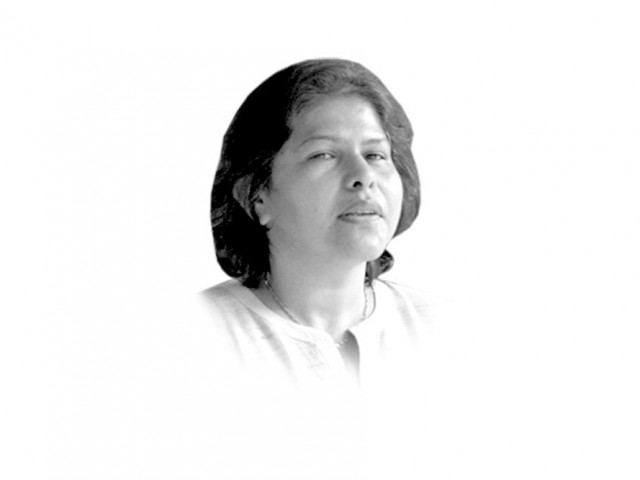Relations with India — the next five years
A major fire breaking out between Pakistan, India is a scenario which is on people’s minds and a worrying...

The writer is an independent social scientist and author of Military Inc.
But such has not been the case of India-Pakistan track-II that are largely tied up with track-I. In most cases, these turn out to be gatherings of retired diplomats and military officers with a sprinkling of journalists or politicians. Broadly speaking, there are two types of track II — those in which we can hear some alternative views within a country team, and then the more high-tech ones dominated by military personnel and diplomats. The tendency in both cases is to cling tightly to the official perspective and not think outside the box. The outcome is in the form of a joint statement in which both delegations insist upon their governments to pave the way for peace. Sadly, that never happens. These gatherings are considered a way to have a sneak peak into what the other side is thinking, visit each other’s countries or some exotic destinations and have a three-four days’ fully paid holiday during which one gets a chance to meet friends.
So, this track-II wasn’t different either. There were two issues with this initiative. First, it never aimed to do much since the track-II event was meant as an advertisement for one of the new think tanks. Second, most of the people invited from the other side were either retired Congress leaders or journalists who critically evaluate the new BJP government. This does not necessarily mean being totally opposed to the government but someone close to the new dispensation would provide a different perspective. So, what we probably had at the end was a lot of conversation on the threat of terrorism, the need to solve unresolved disputes, and hope for improving trade and bilateral ties in general, with no reference to any timeline or a road map.
Perhaps, there is no need for a road map because both sides have yet again lost the passion with which they thought of peace with each other. There are three possible scenarios. The first and ideal scenario is that things will begin to improve slowly. Second, given our limitations, the best case may be that life goes on as usual with no major gains but no losses either.
In this situation, we may not even see trade take off, which is considered a possible method for improving ties. I remember listening to the Jinnah Fellow at Oxford University, Dr Ishtiaq Ahmed, at a conference in Oxford he had excellently organised. In the presence of many of our good soldiers sitting in the conference room, he drew attention towards the inevitability of trade with India and that being a possible game-changer. But the question is, should we still be hopeful or have we missed the trade bus? It would have made more sense had we done trade for the sake of trade and not for the sake of peace. The latter makes trade as a bargaining chip rather than creating a win-win situation for both sides. It is much more possible that now we will continue to talk trade but not have a major breakthrough. The initiative is already hijacked by our bilateral hostilities and mindsets. India is wary of desiring better trade relations to eventually get access to Afghanistan, and we are more passionate than ever to block that possibility.
A forward movement in trade requires some confidence in each other. It requires greater confidence building which is not likely to happen in the near future. While Modi tries to anchor himself in Delhi, Nawaz Sharif’s government seems to become unstable with the environment getting more hostile. The grapevine has begun to whisper September/October as the government’s last months, which may not actually be the case. However, the fact that this is being said does not give a foreign government any confidence. Moreover, the issue now is that with the Sharif government overly concentrating on the Tahirul Qadri phenomenon and also mishandling it in the process, would it have time to establish a line of communication inside Narendra Modi’s cabal and vice versa?
The second and most extreme scenario is a conflict brewing in the subcontinent due to some crisis in India. The fact that leaders of militant outfits are roaming freely and setting foreign policy agenda for the government does not encourage many. Modi’s government walks a tight rope where it ought to appreciate the need to focus on improving communal relations in the country which militant non-state actors could manipulate to their advantage. All it needs is a few sparks for someone to light a fire out of it. An additional factor this time is that with the urge to save his reputation as the tough man of politics, Modi may not even give himself time to look at veracity of claims presented to him, in case something untoward happens. Thus, a major fire breaking out between the two neighbours is a scenario which is on people’s minds and is a worrying possibility.
A friend recently asked me about how I saw India-Pakistan relations in the coming years. The more I thought about it, the only thing I wished for was for the relations to get frozen in time so when we wake up after a few years, we may be able to pick up the threads again and not have destroyed each other by design or default. We may have lost the key to find stable peace. All we have are numerous negotiating tracks filled up with people with little ability to think long term.
Published in The Express Tribune, June 19th, 2014.
Like Opinion & Editorial on Facebook, follow @ETOpEd on Twitter to receive all updates on all our daily pieces.















COMMENTS
Comments are moderated and generally will be posted if they are on-topic and not abusive.
For more information, please see our Comments FAQ